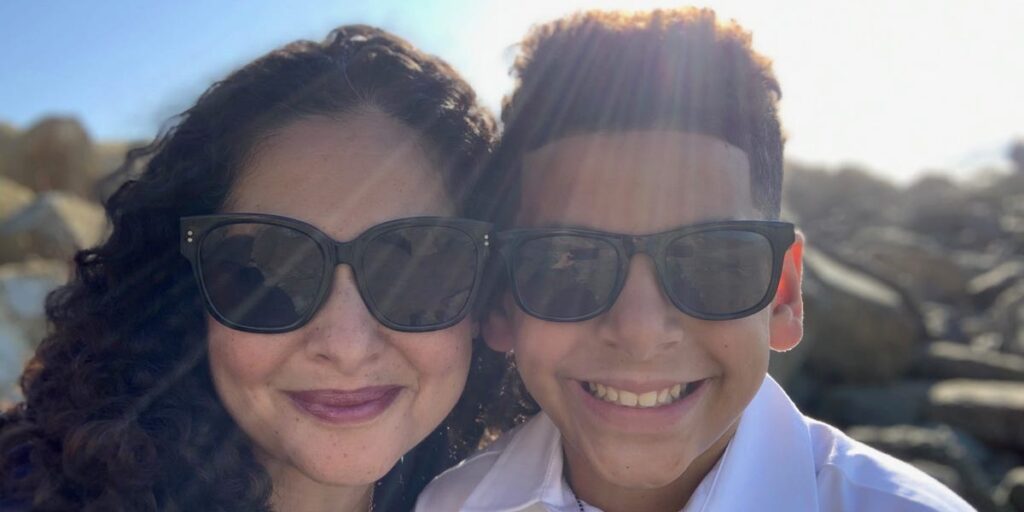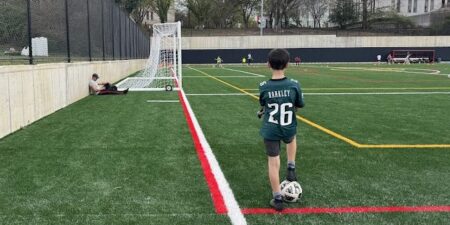School had always come easily to my eldest. He could coast and still get good grades. However, in middle school, when the workload grew, he didn’t adjust.
Initially, I wasn’t worried. I’d done the same: procrastinated, then aced my tests, so I assumed he would, too. The difference was that I cared about getting the A. He didn’t.
He’d let grades drop, then pull an all-nighter, not for the grade, but to avoid consequences. He didn’t value homework, so he skipped it.
One day, while he was showing me his grades online, something felt off. Nothing looked wrong, but I suddenly had the urge to refresh the page. The moment I did, he tensed up, and the grade changed from passing to failing.
My 12-year-old had altered the site’s source code to hide the real grade. I was both disappointed and impressed.
If he could use that ingenuity to hide a grade, he could use it to accomplish anything—he just had to care about the goal.
I punished him with micromanagement
I’ve always parented intentionally. I set expectations and decided when to step in or let my kids figure it out. Sometimes that meant watching them struggle.
After the report card hack, I knew my son needed more support.
I took a hands-on approach, including weekly check-ins, reviewing progress, and utilizing Google Calendar to teach time-blocking.
Until he consistently followed through, he stayed in “micromanagement mode.” He hated it, but it was the only way. Traditional punishment, like grounding, only caused conflict and didn’t solve the issue.
I just wanted my son to love learning
As the years passed, his school performance never permanently improved. His grades were always a roller coaster ride: up when he did his homework and down when he didn’t.
It was really challenging as a parent. I saw what needed to happen, but I couldn’t do anything except keep showing up and supporting him.
My goal was never to have him be an A student, specifically. It was to get him to love learning and learn how to learn.
My husband and I fundamentally understand that school is only a short period in a person’s life. As long as kids develop the skills to learn, they will have the skills they need to succeed in life beyond school, in a traditional workplace, or as a business owner.
While my son hadn’t shown a love for learning in school, he had demonstrated it in his business ventures, which he started at age 9.
My son struggled in school but excelled in business, which was hard to deal with as a parent
He flipped sneakers at first, then in high school he moved on to flipping dirt bikes. He’d do the research, find deals, track margins, and run everything from start to finish.
When it came to business, he was focused, disciplined, and all-in.
This demonstrated to me that he could apply himself, research a business, understand market pricing, learn how to offer a product or service, and recognize how to make a profit, as well as understand what results in losing money.
On the other hand, when he didn’t do his homework and his grades tanked, I wouldn’t take him to meet someone to possibly buy or sell an item until he had zero missed school assignments.
I explained that those requirements also occur in life. If you, as a business owner, don’t file your taxes, it reaches the point where you aren’t allowed to operate until you bring your outstanding taxes up to date.
It was a constant struggle—school and his business—but I stayed the course. Then, one day, he told me he had decided to graduate from high school early.
Finishing school meant more freedom to focus on what he loved, but it also meant he’d have to buckle down and really apply himself academically.
Once school aligned with his goals, he engaged for good. He completed his coursework and graduated six months ahead of schedule. I was thrilled.
I stayed consistent so he could make a different choice
Now, at 18, my son lives at home and has decided not to go to college because he knows he doesn’t enjoy traditional learning and the traditional academic path.
My husband and I consider his graduating early a huge win—not only because we saw how easily he completed his coursework, but also because we now see him choose to learn and grow based on his interests without traditional schoolwork in the way.
He’s established his own LLC for his business ventures, invested his own money in an independent learning course focused on real estate development, and is actively researching wealth management strategies and various financial and insurance investment options.
He’s taking action and following through, and most importantly, he’s driving all of it.
All we ever wanted was for him to be self-sufficient and set up for success. Even though the roller coaster was hard for us to endure as parents, we held on, and we’re so impressed with the person our son has become.
Read the full article here
















